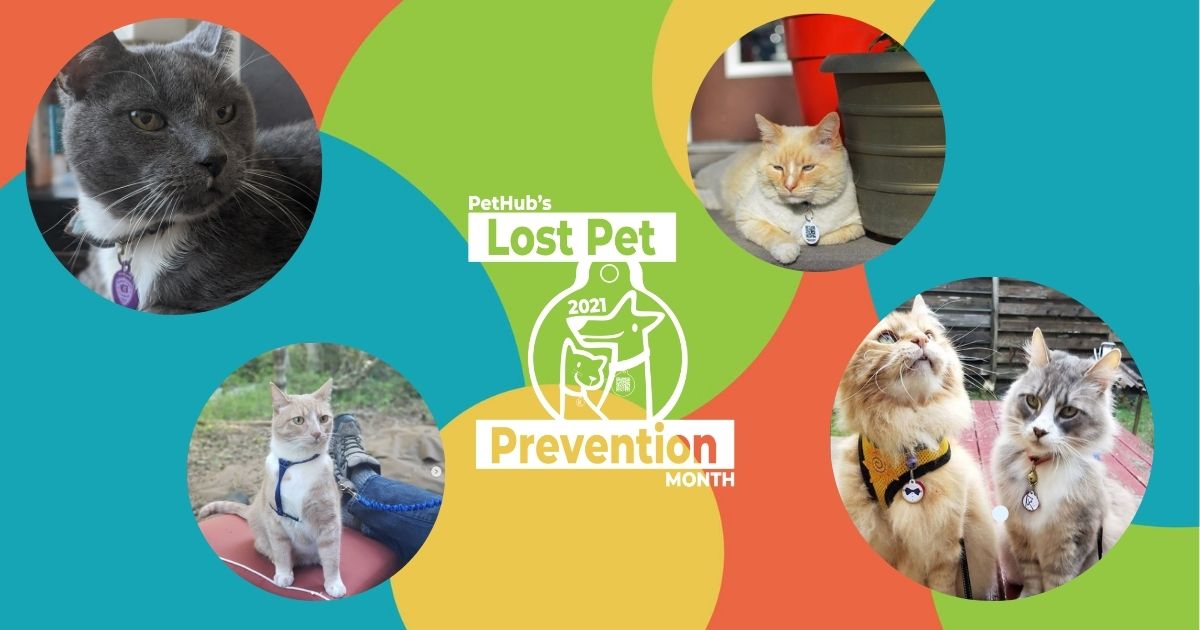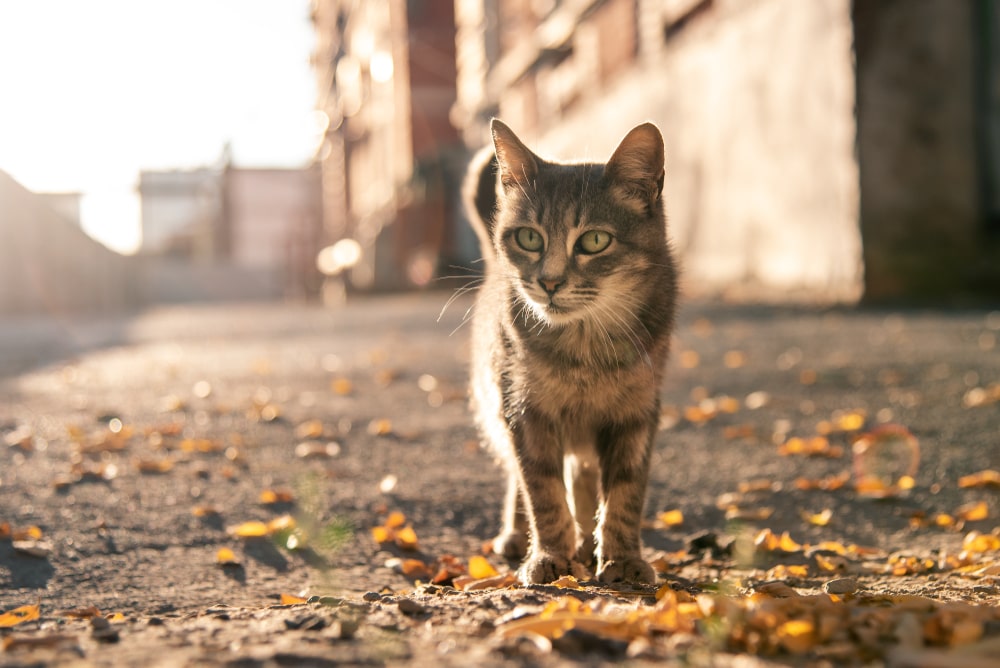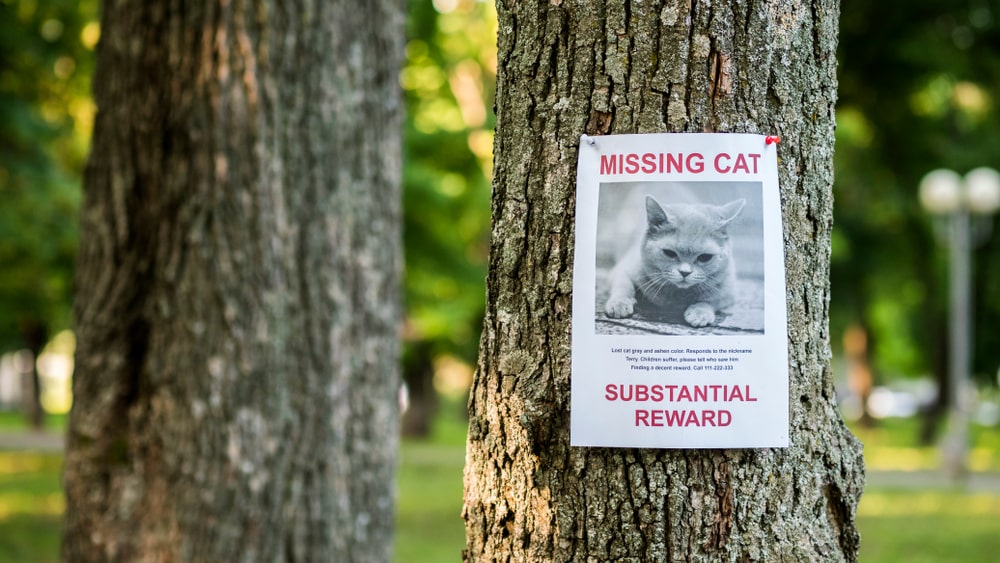This is a featured guest post from PetGuide with Amy Tokic

Cats are curious creatures and always on the lookout for a new adventure, but that daredevil spirit often leads them straight to trouble. Unfortunately, it’s not rare that cats go missing after venturing out, but there are ways to prevent your pet from getting lost and make sure that even if something happens, they’ll be returned to you safe and sound.
Secure your home and yard
Statistics indicate that indoor cats are healthier and live longer than outdoor cats: according to Fetch by WebMD, the lifespan of an indoor cat is around 10 to 15 years of age whereas cats that spend most of their lives outdoors live an average of just 2 to 5 years. The outside world holds many dangers for a feline, and letting your pet out to roam around can lead to them never coming back home. This is why it’s crucial to properly secure your house and your yard even if you don’t plan on letting your cat out.
Install screens on doors and windows to make sure they can’t wiggle out when you’re not looking and get a fence for your yard to prevent predators from coming near your home as well as keep your cat from finding a way to roam around the neighborhood. If you want your pet to experience the outdoors, get a leash and a harness and take them on walks - that way, they’ll be safe and always by your side.
Spay or neuter your cat
One of the main reasons why cats have the urge to go outside is their sexual drive. Sexually intact males go wandering in search of a female to mate with and female cats in heat mark territory with their scent to attract them, leading both sexes to make escape attempts when their instincts kick in.
There are many benefits to spaying or neutering your cat, but one of the best is that the desire for mating is eliminated and your pet won’t have that unyielding desire to go out all the time.
Invisible Identification- Microchip your pet
Despite your best attempts to keep your cat inside the house all of the time, accidents happen and your pet might get lost. In addition to doing all that you can to prevent your cat from getting lost in the first place, you should cover your bases and ensure that even if your pet escapes, you’ll be reunited.
Microchipping your cat makes sure that in the event your cat is brought to a shelter or a veterinarian's office, you will be contacted instantly. A microchip is a tiny implant that is inserted under the skin and contains a serial number unique to your pet and their owner's contact information a vet or a clinician can use to return the cat to their rightful owner.
Get your cat a collar with an ID tag
Microchipping is not without its faults. A microchip can malfunction or travel to another part of the body, making it difficult for the scanner to pick it up during an exam. Not to mention that lost cats don’t always get taken to the vet’s office straight away - a Good Samaritan might not know that they should check the microchip first, your cat might be skittish when lost, or they might not be a veterinarian close by.
This is why you should combine invisible identification with a good old fashioned collar with an ID tag that clearly displays your contact information for everyone to see. It sends a clear message that your kitty has a loving owner waiting for them to come back so they won’t be mistaken for a stray and adopted by someone else and it also helps the people that find your pet get in touch with you to return them.

Amy Tokic, Editor of PetGuide.com, is a passionate animal lover and proud pet parent of Oscar, a Shih Tzu/Chihuahua cross, and Zed, a Japanese Chin. Her love of animals began in kindergarten, when she brought her stuffed dog Snoopy into class with her every day. Now, she writes about her adventures in pet ownership and tirelessly researches products, news and health related issues she can share with other animal enthusiasts. In her free time, Amy loves perusing used book and record stores, obsessing over the latest pet products available and chasing squirrels with wild abandon (a habit attributed to spending too much time with Oscar).


